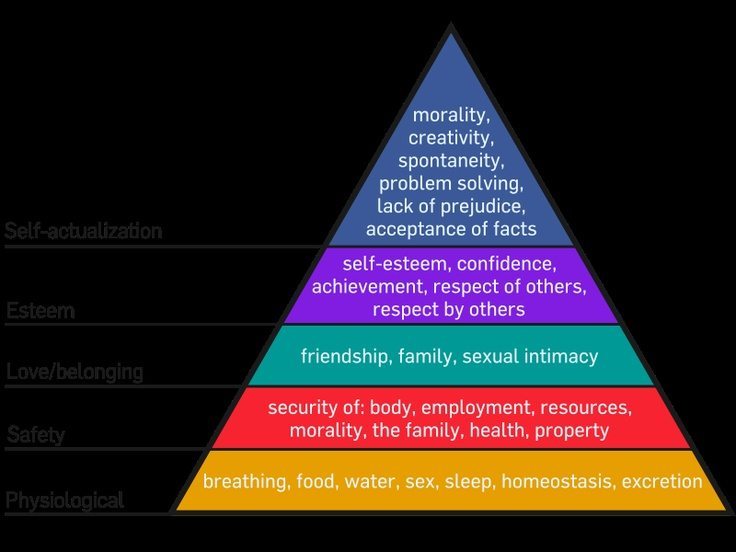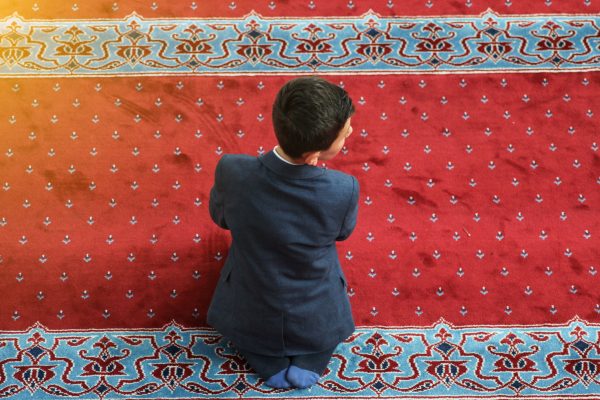Cain, out of jealousy, committed murder, losing all regard for his brother’s honorable life. It becomes imperative that we understand why jealousy comes into being and how it can be made extinct.
Cain, out of jealousy, committed murder, losing all regard for his brother’s honorable life. It becomes imperative that we understand why jealousy comes into being and how it can be made extinct.
We may be deceiving ourselves if we claim that we’re not jealous of anyone. Jealousy is so rampant that Allah (SWT) teaches us to seek refuge from its perpetrators (Quran, 113:5). In fact, envy was the first sin committed by humans on Earth (Quran, 5:27).
Jealousy is a feeling of discomfort and resentment to the advantages and possessions of another person. It manifests as acts of disregard for the honor of others. When we’re jealous of a leader in our community for example, we backbite them at every chance hoping to erase their respect from people’s hearts. When we’re jealous of colleagues who enjoy a more successful career than us, we tell the world how unworthy they are of their position instead of celebrating their successes.
Cain, out of jealousy, committed murder, losing all regard for his brother’s honorable life. Observing such detrimental consequences of jealousy, it becomes imperative that we understand why jealousy comes into being and how it can be made extinct. Both of these questions are answered in Dua Makarim-ul-Akhlaq, taught to us by Ali ibn Husayn Zainul Abideen (AS).
Dua Makarim-ul-Akhlaq is a supplication to Allah in seeking high moral traits. In this dua, when seeking remedy for the moral illness of jealousy, Zainul Abideen pleads:
“O God, make the envy which Satan throws into my heart…a remembrance of Thy mightiness, a reflection upon Thy power, and a devising against Thy enemy [Satan].”
From this phrase, we understand that the remembrance of Allah’s might and power is the remedy to jealousy. Likewise, a heart that accepts the supreme being but is negligent of His supreme control is a harboring place for envy. Ali ibn Abu Talib (AS) likens such a heart and faith to dry wood, i.e., such faith is a perfect fuel for the fire of envy. The connection between jealousy and the lack of knowledge of Allah’s strength can be understood when we explore the psychological cause of envy.
“Don’t be jealous. Jealousy eats away faith as fire devours dry wood.” (Ali ibn Abu Talib)
Where does envy come from?
Fear is the origin of envy. The danger of losing elements of our life that allow for a comfortable living promote envy. Psychologists have described such fear in the context of romantic relationships, when we may become envious of an individual in our partner’s life out of fear that we’ll lose the love of our partner (DeSteno, 2006). It is a flawed defense mechanism to hold on to possessions we find crucial for our well-being. This concept can be applied to all other human needs, beyond those of love and affection. Maslow’s hierarchy (below) effectively organizes these requirements of a joyful being into categories of physiology, safety, belonging, esteem, and self-actualization.

We are constantly struggling to nurture our lives with these elements. Sometimes, we come close to acquiring them. Other times, we lag behind while those around us become victorious. It is in such times of lag that we feel envious of those whose needs in life are fulfilled.
For example, gaining the respect of people is necessary to build our esteem. When we see that someone in our community is receiving more honor than us because of their selfless work, we fear that our prestige in the eyes of people will be belittled. We forget that it is, in fact, Allah who gives honor to those He wills (Quran, 3:26). We forget that it is He who hides our flaws and exaggerates our praises in the eyes of people, so their hearts may be inclined towards us. We forget that all honor and glory comes through his permission and approval.
Envy stems from lack of trust in Allah
Likewise, striving for financial stability is innate to us because it creates a sense of safety. When we see our classmates rising to high paying positions and compare them to our job that allows for a single day’s bread but no future planning, we become anxious, anxious that our future will be in ruins, anxious that today’s bread will not last us for the tomorrow, and anxious that the rain and thunder of tomorrow will pour over us and we’ll have no roof to cover us. In such anxiety and fear, we become envious of our classmates and wish their success can be snatched away from them and be transferred over to us.
However, such anxiety breathes in our souls because we forget that it is Allah who provides us with our daily bread. We forget that it is He who safeguards us from the baking sun and shaking thunders of life. We forget that he is Al-Basit – the one who expands our sustenance and provides it out of ways that we cannot imagine. We know that it is Allah who created us, but we forget that it is also He who nurtured us with our mother’s milk. Such incomplete faith becomes a fertile ground for envy. Jealousy burns away such a dry and weightless faith and turns it into ashes to be blown away by the breath of Satan.
“O God, make the envy which Satan throws into my heart a remembrance of Thy mightiness, a reflection upon Thy power, and a devising against Thy enemy [Satan].” (Zainul Abideen)
How to defeat envy
This fire, once ignited, can be extinguished by pouring over it the remembrance of Allah’s oneness. One of the tenets of Tawheed (Allah’s Oneness) is to believe that He is the source of all action in this Universe. Without His leave, nothing can pass and with His might, everything is possible. Upon Him is the sustenance of every being (Quran, 11:6). No matter how high on Maslow’s hierarchy our needs may fall, He is able to fulfill them. When we realize His oneness in this manner, our fear and anxiety evaporate.
If faith, devoid of the knowledge of Allah’s might, is like dry wood and fuels fire, then the remembrance of Allah’s power replenishes such faith with water and quenches every fire. Therefore, the next time we find it cumbersome to praise the sincere work of a community member or are tempted to speak unfairly against our co-workers or class fellows, let us ask ourselves, “am I feeling jealous? Is my heart anxious and fearful over anything they have and I don’t?” Once we recognize our feelings, we can turn to Allah, the Mighty and Powerful, to expand our sustenance. With such a dua, our actions will transform, words of praise for others will flow from our tongue and we will be delighted to celebrate the joys of others.
By Yusra F. Shao, MD
References
- Quran, Chapter 113, verse 5
- Quran, Chapter 5, verse 27
- Imam Zainul Abideen, Dua Makarim al Akhlaq
- Imam Ali, Sermon 85, Nahjul Balagha
- DeSteno, D., Valdesolo, P., & Bartlett, M. Y. (January 01, 2006). Jealousy and the threatened self: getting to the heart of the green-eyed monster. Journal of Personality and Social Psychology, 91, 4, 626-41.
- Quran, Chapter 3, verse 26
- Quran, Chapter 11, verse 6





